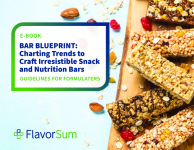Sodium benzoate removed from Diet Coke
sodium benzoate in Diet Coke on the back of consumer demand for
more natural products.
The company said it began removing the preservative (E211) from production lines in January, and so it should be out of circulation by the end of the year.
However, the additive removal is only currently planned for products sold in Britain.
The Coca-Cola Company could not confirm if any other countries would follow suit.
A spokesperson also told FoodNavigator.com that there are no current plans to remove sodium benzoate from any other of its brands, such as Fanta, Sprite, Oasis and regular Coca-Cola.
"The product is very important technically, especially in fruit-based drinks," said a spokesperson.
"We are currently able to remove it from Diet Coke and we will look at removing it from products where technically possible."
Possible risks from sodium benzoate Sodium benzoate is used as a preservative in drinks, providing safety and stability for the product.
It has proved a controversial additive, as recent studies have highlighted health concerns from its use.
However, Coca-Cola insisted the move was not a result of the studies and was keen to point out that both EFSA and the FSA have granted the product safe, and its removal from Diet Coke is simply a response to consumer preferences for natural.
A spokesperson said: "We have looked at removing sodium benzoate for a number of years in a move towards having no artificial additives.
Our decision is based on emerging consumer trends for natural."
Last year, research linked the product to cell damage.
The study was conducted by professor Peter Piper from Sheffield University, an expert in molecular biology and biotechnology.
He tested benzoate on yeast cells and found the preservative spurred an increase in production of oxygen radicals, or free radicals, which several studies have linked to serious illnesses and ageing in general.
Benzoate appeared to attack cells' mitochondria, damaging their ability to prevent oxygen leaks that create free radicals.
Yeast cells were used because of their similarity to human ones, but no research on humans has been done.
Additionally, sodium benzoate was present in the Southampton study, which linked additives to hyperactivity in children.
In the study, two mixes of additives were given to children.
While the European Food Safety Authority (EFSA) decided the study was insufficient to determine a ban on the colours, it has since sparked the UK Food Standards Agency (FSA) to encourage the voluntary removal of the artificial colours from products.
Because sodium benzoate was present in both mixes but resulted in different effects on hyperactivity, no recommendations have been made on its removal.
However, it has not failed to raise concern in consumers.
Reformulation Coca-cola is not alone in responding to consumer demand for natural, with many manufacturers the aiming for the removal of artificial additives.
Major supermarkets, including Asda, Sainsbury's and Tesco, pledged to remove artificial additives from their private label soft drinks last summer, following the furore.
Nestle Rowntree promised to remove all artificial colourings from its confectionery in the summer of 2005.
At that time, the company reported a 9 per cent increase on sales of Rowntree products, indicating the strategy's popularity amongst consumers.
Last month, Cadbury pledged to remove all artificial colourings from its confectionery products by the end of the year in response to concerns over their possible effects on behaviour.
Source The Lancet 2007; 370:1560-70 "Food additives and hyperactive behaviour in 3-year-old and 8/9 year-old children in the community a randomised, double-blinded, placebo-controlled trial" Authors: McCann D, Barrett A, Cooper A, Crumpler D, Dalen L, Grimshaw K, et al














